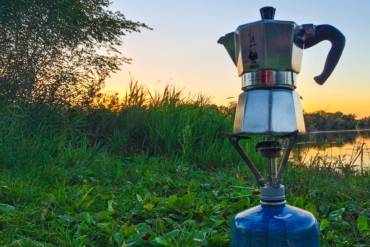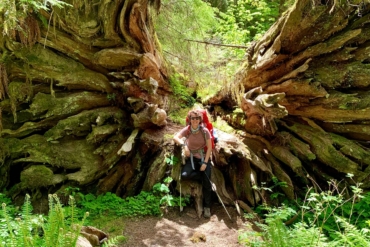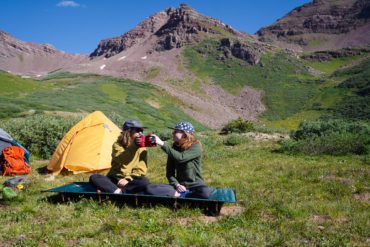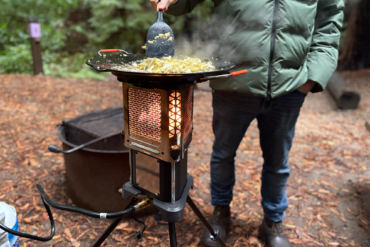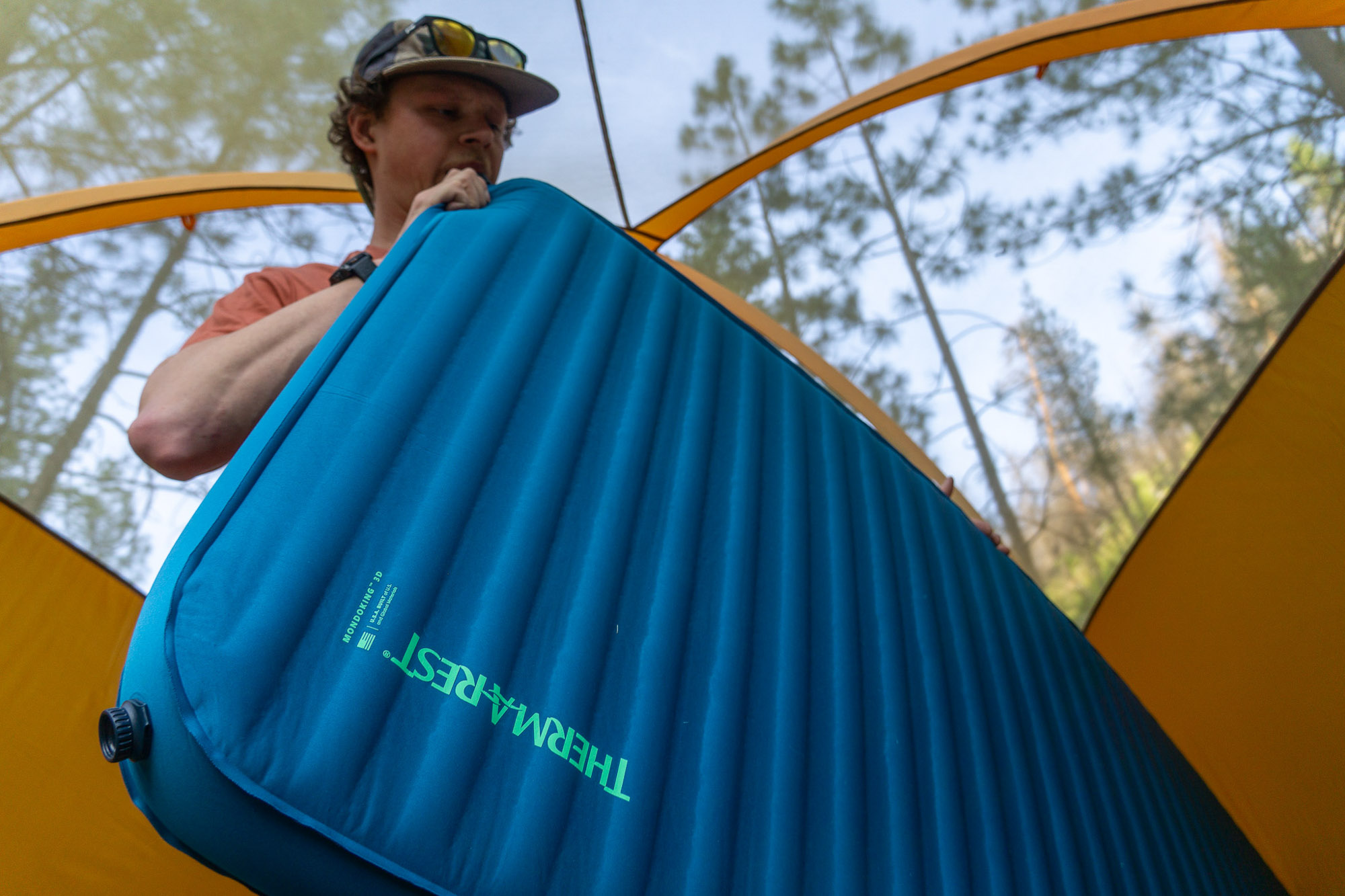Hyperlite Mountain Gear believes a well-organized ultralight backpacking system pays off in weight savings and organization. Its line of backpacks, shelters, and stuff sacks can help you streamline your packing list.
Hyperlite Mountain Gear emphasizes a backpacking system to lighten the load and stay organized on ultralight hikes. The harder the effort, the theory goes, the more benefit you’ll reap from weight savings.
If cyclists are known for their obsession with counting grams, ultralight backpackers can’t be far behind. Simplicity isn’t just about weight, though. Having a lightweight backpack helps you stay organized, optimize storage, and protect your gear — providing benefits on long hikes.
Explore Hyperlite Mountain Gear Backpacks and Stuff Sacks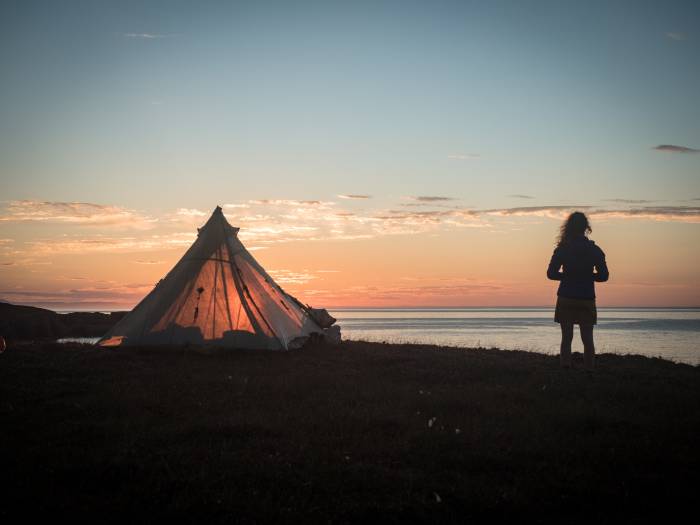
Saving Weight (and Money)
As we covered in Essentialism 101, packing light means cutting down on redundancies.
If you’ve never packed with an emphasis on saving weight, you may want to take the time to lay out all your gear on the floor. Go through a list of essentials and move those items to one side. Obviously, if you weigh everything individually, it’s easier to calculate different packing lists on paper.
Next, make a list of accessories. A titanium spork is ultralight, but may not be worth the price compared to a plastic spork that barely weighs more.
Essentials like backpacks, tents, and sleeping bags are big-ticket items and worth considering on a cost-to-weight basis. Even if you don’t have more ultralight hikes planned, lighter items can also be used for more casual trips and car camping.
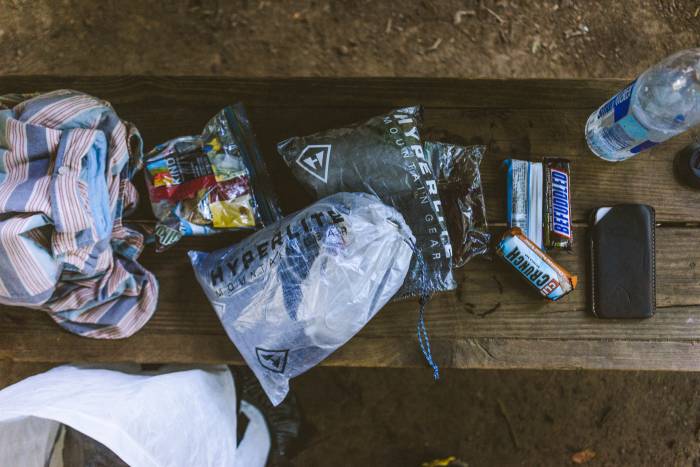
Like Things Go Together
Deciding what to pack is also a matter of utility.
To stay organized inside a backpack, especially a minimalist ultralight backpack, you should adopt a system that compartmentalizes your gear. Stuff sacks are a great way to keep sleeping gear, clothes, toiletries, and food separate.
Because you’ll distribute heavier items at the base of a pack, it’s likely your tent and food will be at the bottom of your pack when it’s time to set up camp. It saves time to unpack (and repack) pods and sacks, and set them aside than have loose clothes cluttering up your site.
After a long hike, digging through a pack to find one item can be frustrating. It also important to keep things you’ll likely need throughout the day more accessible, and items that aren’t necessary until reaching camp packed away.
Hyperlite Mountain Gear Stuff Sacks and Pods
Hyperlite Mountain Gear stuff sacks are built to be more rugged and water-resistant than the usual nylon pouches that come with tents and sleeping bags. Replacing those standard-issue packs that come with your tent, bag, and pad provides a gateway into ultralight materials that aim to shave ounces.
These Dyneema sacks have renowned durability, too, which can defend against a stray tent spike or pole poking into your gear. Beefier stuff sacks will also add redundancy to protecting items from moisture, especially if your bag will collect some morning dew.
Hyperlite offers tips on which stuff sacks will fit and protect your gear. This all precedes your choice of backpack. Buying an ultralight backpack doesn’t make much sense unless you’ve first pared down the lower-hanging fruit on your gear list.
Hyperlite Mountain Gear Backpacks
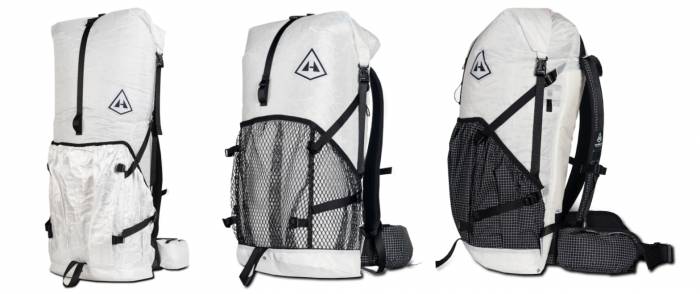
Generally, ultralight backpacks forego the internal pockets, dividers, and zippers found in traditional packs. Hyperlite Mountain Gear makes four “core” backpacks. The main packs are similar, yet they use different outer pockets and materials according to environmental considerations.
For instance, beefier outer fabrics protect the 3400 North Rim canyoneering pack. The North Rim is large enough for thru-hikes but can size down for short hikes.
The 2400 Windrider is the brand’s original pack with less-protected outer pockets. Hyperlite Mountain Gear pegs the Windrider’s sweet spot on the Appalachian Trail and on trips lasting up to 4 days.
In contrast, the roll-top 2400 Southwest aims to meet the needs of Continental Divide Trail hikers, where brushes up against more rugged terrain are expected.
Hyperlite Mountain Gear also makes packs for snowy missions and when waterproofing is paramount.
Hyperlite Mountain Gear Tents & Shelters

Your home away from home will come down to a choice in comfort and ease of setup.
Tents provide walls from the elements and early morning sunlight. Hyperlite Mountain Gear makes several tents, ranging from the large Ultamid 4 Pyramid Tent architecture to the Echo 2 shelter system. Most models have companion mesh inserts sold separately.
For the real minimalists, there are tarp shelters. If you’re hiking with poles (usually considered worth the weight) and headed to drier climates, a Flat Tarp may be all you need.
If there will be mosquitoes, plan to pack netting to wear around your head.

Ultralight Need Not Be Overnight
Unless you have a thru-hike planned or are starting from scratch, assembling an ultralight kit is most practical when done over time.
As mentioned with the stuff sacks, dipping your toe into the market with smaller items can be an entry point to shedding ounces, especially if you’ve recently purchased a tent or pack you’re not ready to replace.
Another option is the Versa, Hyperlite Mountain Gear’s answer to the fanny pack. Hikers can definitely use this as part of an ultralight system.
It’s highly weather-resistant and weighs less than 3 ounces, so it can protect valuables like a phone, and hold necessities like a credit card, ID, and snacks in one place. That way, if you want to set down your backpack for a side trek to a stream or overlook, you can bring the Versa with you for added peace of mind.

Day packs can be an important investment as you start to build your kit that offers a variety of perks without the extra size (or budget) of a pack made for multinight adventures.
The Daybreak Ultralite Pack has enough space for hydration, food, clothing for changes in temps, and other necessities. This type of pack is versatile for several types of adventures and is a worthy first dip into the ultralight packing world.
No matter how you enter into ultralight backpacking, know that everything is a balance of weight, cost, and utility. Once you experiment with paring down your gear and actually hike in a lighter pack, the payoff can mean more endurance and more miles.
Explore Hyperlite Mountain Gear Backpacks and Stuff SacksThis post is sponsored by Hyperlite Mountain Gear. Find out more about its ultralight backpacks and stuff sacks here.



